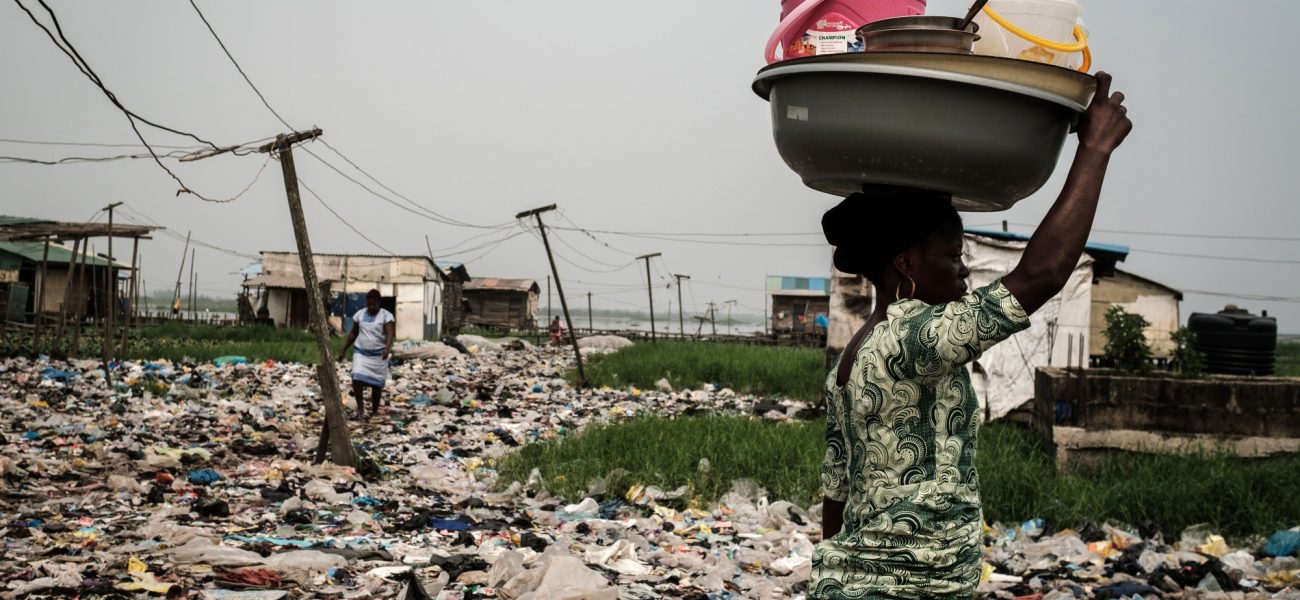Figures received by the National Bureau of Statistics (NBS) show that the condition of living in Nigeria which is already harsh is set to worsen. In a report issued this week, NBS disclosed that inflation figures have climbed to a 17-year high of 20.52%. The figure rose from 19.64% in July 2022 to 20.52% in August 2022. The worst hit of inflation is food inflation that rose to 23.12% in August in the NBS report. With farmers increasingly finding it difficult to access their farms owing to banditry, kidnapping and general insecurity and the government unwilling and unable to tackle ravaging insecurity in the country, there is no doubt that living conditions in Nigeria will worsen.
Although it is a fact that countries around the world are grappling with the challenge of inflation, Nigeria’s conditions appear peculiar. Agricultural productivity in the country has been worsened by nationwide deterioration of security. A lot of farming activities have significantly decreased or even halted as farmers fear for their lives and avoid farming. This has consequences for poverty as most rural families can no longer earn from farming. Large farming businesses are also impacted by this with citizens spending more on food produce.
The global challenge of inflation has seen even developed countries hiking interest rates by as much as 100 basis point. But in these countries, interest rates are at single digit numbers still. Nigeria’s interest rate figures are in double digit and officially is 13%; yet, practically loans are mostly available at far more than the official rate.
It is unclear how the Central Bank of Nigeria (CBN) will react to the recent NBS figures. Hikes in interest rates pose their own challenges and, in an economy where the spiraling effect of this could have wider implications with interest rates already at a high, any further hike could have serious unintended consequences.
In the recent past, the Nigerian government developed what it calls poverty alleviation schemes centred on cash handouts to indigent citizens. President Muhammadu Buhari’s government announced in 2019, a plan to lift 100 million Nigerians out of poverty in ten years. Since then, the Federal Government has launched several social welfare schemes through its Ministry of Humanitarian Affairs, Disaster Management and Social Development, ostensibly in an effort to fulfil citizens’ socio-economic rights. In one example of handouts, the Ministry of Humanitarian Affairs began a scheme called Grant for Vulnerable Groups (GVG) in Bauchi State on Monday, 12th September 2022, to provide grants of N20,000 each to 5,679 beneficiaries across the 20 local government areas of the State. According to the Ministry, the GVG is targeted at providing the poorest and most vulnerable Nigerians in rural and peri-urban areas across the 36 States of the country and the Federal Capital Territory (FCT) with one-off grants.
However, there are questions as to the effectiveness, as well as the transparency, accountability and sustainability of these social welfare schemes. Indeed, countries across the world make provision for social welfare and also introduce measures to deal with the impact of unforeseen circumstances such as natural disasters, disease outbreak, etc. The COVID-19 pandemic is a prime example which had severe impact globally. Nigeria like many other countries introduced palliatives to cushion the effect of the pandemic on its citizens. However, this was not without controversy, from allegations that the relief items were hoarded to outright questioning of the existence of some of the measures announced – how beneficiaries were determined, whom the beneficiaries were and if they actually received the items and funds. These issues also trail other welfare programmes implemented by the Ministry of humanitarian Affairs, such as the training and empowerment of youths in Bauchi in smartphone repair which cost N6.2 billion and a similar training in Kano which cost N5.9 billion; the National Home Grown School Feeding programme which in May 2022 was announced to cost almost N1 billion per month, to mention a few.
In June 2018, Nigeria overtook India as the poverty capital of the world with about 86.9 million people living in extreme poverty and by December 2018, this number had increased to a staggering 90.8 million. Observers wonder if the funds spent on these welfare schemes have translated to any real empowerment for affected citizens. It is true that cash handouts can address immediate needs of several persons living in abject poverty. However, in addition to the issues of transparency and sustainability, there is the question of impact – are handout schemes sufficient to actually address the high level of poverty in the country? The issues of security, electricity, infrastructure and fiscal policies to support the growth and development of businesses remain unaddressed.

